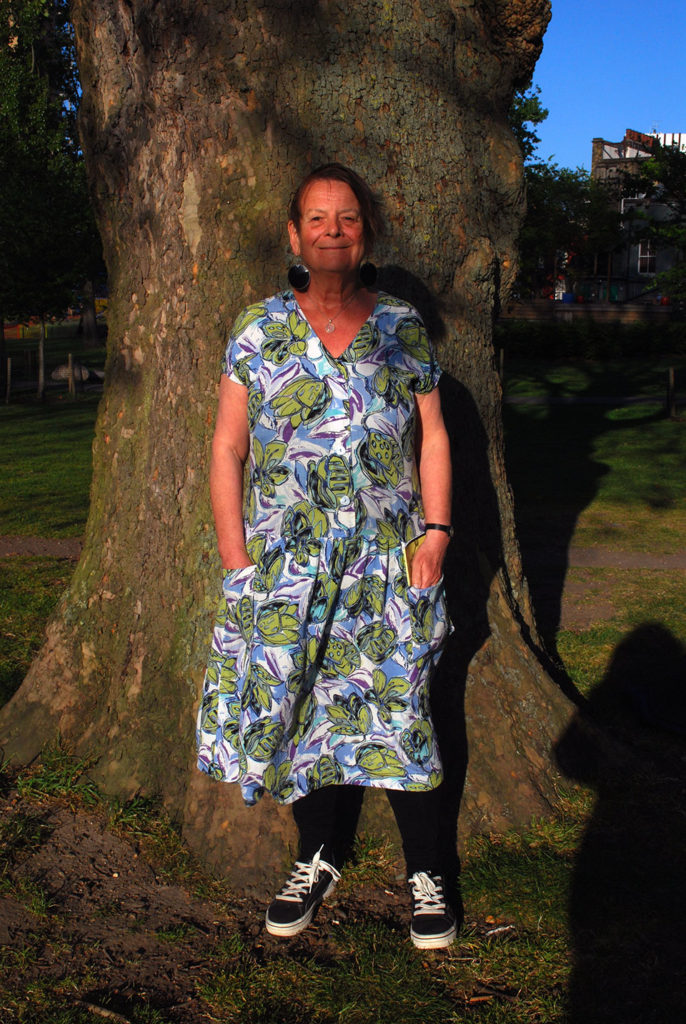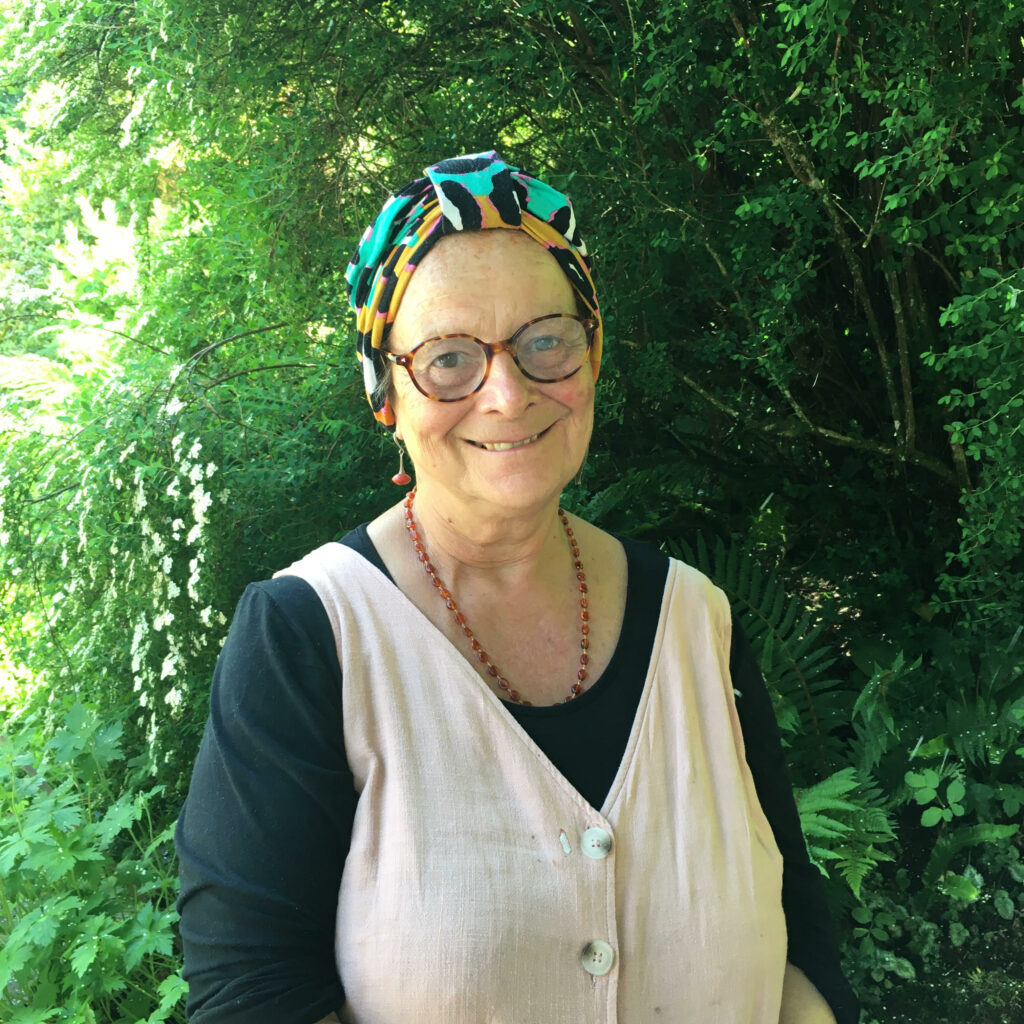
I wrote my first poem when I was 13. It starts:
“the world has a great wound where Vietnam used to be”
and I guess such sentiments have influenced my life ever since. It is only in my 60s, after a life of adventure, as a mother, daughter, lawyer, lover, traveller, grandmother that I have had time to publish some of my poems.
I had a secure peaceful childhood in Lincolnshire, where my much loved dad was a fireman. I was very rebellious and left home at 17, becoming a single parent at 29. I have one daughter.
I first left the UK in 1969 for France when I was 16 to stay with a large working-class family whose lively interest in politics stayed with me forever. I loved their dinner time debates over the events of 1968 fuelled by cheap red wine. I became fluent enough in French to get a scholarship to the Instutut Francais in London.
Since then I have worked and played around the world and will never stop loving that feeling of stepping onto strange land surrounded by different aromas, warm winds and excited by an adventure about to begin.
I made my home in Hackney 40 years ago and still live in the same flat, in a Victorian house. For 9 years I worked in the Centreprise collective where I was encouraged to get a Law Degree whilst working part-time as a single parent.
I became a solicitor at 39 and have worked in Legal Aid ever since, mainly with migrants on issues relating to immigration and destitution. I have won a case in the Supreme Court (Harrow v Fahia) got a Masters Degree in Refugee Studies and worked in both private practice and latterly at Hackney Law Centre.
I love Hackney. I became an adult here. Being part of the rich mix of people from all over the world has enabled me to see life through many different prisms and to want to write about the joy, pain and hope we all feel.
In 2016 for 5 months I volunteered with la Cabane Juridique in the Jungle in Calais. We succeeded in getting many children transferred to join close family members in the UK but lost touch with many others when the Jungle was destroyed. The experience was terrifying and uplifting and inspired me to write about the daily struggle of millions of refugees to obtain food, shelter and security.
In 2019 I was diagnosed with bowel cancer. The NHS gave me a life -saving operation, but sadly in October 2020 my medical team found 2 small tumours on my lymph nodes. Nearly a year later, we are optimistic an intensive radiotherapy course will get rid of them, but nothing is certain. Two poems “Cancer Ward” and “My Consultant” say how I feel about the people I’ve met in our wonderful NHS.
Hackney

A rich mix of people from every nation and walk of life live in Hackney: from extreme poverty and deprivation, to rich, new gated communities. Over four decades of living here I have witnessed many prisms of life and am privileged to be able to write about the joy, the pain, the hope everyone feels.
It is no surprise that Hackney ranks third in the population percentage of Covid 19 deaths: we have a high number of black and ethnic minorities working for low wages in the public sector. With little income, high private rents to pay and forced to live in overcrowded accommodation, they have no choice but to continue working through the Pandemic: on the transport networks, in the hospitals and care homes, in schools. The woeful failure of the Government to provide such workers with adequate PPE has led to many unnecessary deaths in places like Newham, Brent and Hackney.
Calais
I worked as a volunteer lawyer in the Calais Jungle through 2016 and 2017 and found the experience both terrifying and inspiring: terrifying because people risked their lives every day to try to get to the UK. Inspiring because of the many small acts of everyday kindness from sharing food, mending bikes and shoes to passing on bandages, plasters and paracetemol.
Between writing Lovelines and The Witching Hour, many more migrants have succeeded in crossing the Channel to seek asylum in the UK. But their hopes for fairer treatment here are in vain. We have witnessed the scandal of Napier Barracks in Kent, which is still being used to house asylum seekers, in spite of a Covid outbreak due to overcrowding and recommendations from H M Inspector of Prisons and other official bodies.
Thousands of asylum seekers have been accommodated in unsuitable hotels in London and other major UK cities, due to emergency Covid regulations, but this will soon end. Some will become homeless. I currently advise a disabled man who has been in a hotel without any disabled adaptations or additional help for four months after having been accepted as a refugee by the Home Office. He is now entitled to self-contained accommodation.
The Nationality and Borders Bill will, amongst many other punitive measures, criminalise anyone who enters the UK illegally to seek asylum and deny them their international right to do so.
CANCER AND COVID
Sadly, the current Covid situation in the UK fails to take account of the sacrifices NHS staff have made and continue to make. The offer of 3% pay cut is derisory for people who have been exposed to Covid, some of whom have died or who now suffer from long Covid. They already regularly work without pay beyond their twelve hour shifts. Hospitalisations are rising because all lockdown measures were lifted on 19 July 2021.
Across the world, there is no leadership to co-ordinate efforts to recognise the global nature of the pandemic and the need for richer states to support poorer ones with vaccine donations and financial aid if we stand any hope of ever controlling the virus. Instead the UK has cut its overseas aid budget.
Having cancer changes people’s lives but can also make them more resilient if they come to terms with the closeness of death.
The NHS saved my life and and I know that the majority of the world’s population cannot access such a ‘luxury’. This is not because it is unaffordable but because those with money and power choose not to invest in it. We have only to look at the high death toll and inability to access health care in the US over Covid 19, mirrored by the UK, in comparisons to other States where individual greed has not become the media mantra and where collective responsibility, through testing and tracing has enabled some lockDown measures to be lifted.